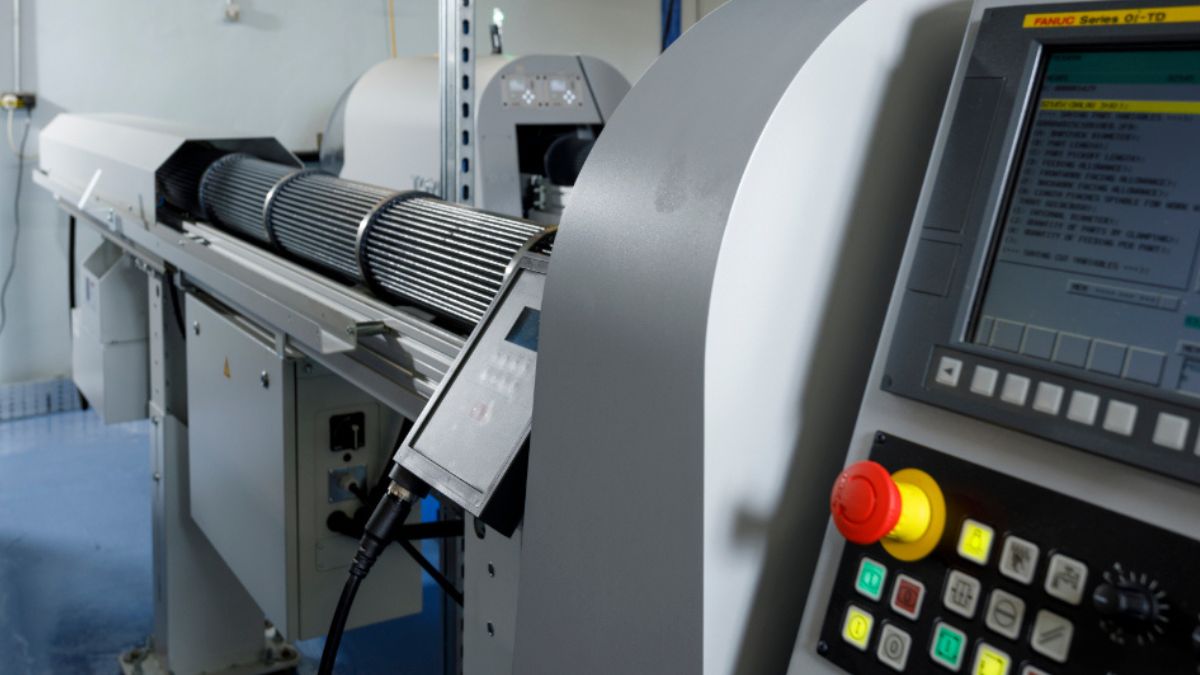Solving Common Processing Issues with Fluoropolymers
 Back
Back

Fluoropolymers are celebrated for their exceptional resistance to heat, chemicals and wear, making them the material of choice across industries such as aerospace, medical, electronics and chemical processing. However, while their properties are impressive, processing fluoropolymers can present unique challenges. Understanding and addressing these issues is essential to achieving consistent, high-performance results, especially in precision applications.
At Dalau, we’ve spent decades refining our methods for processing materials like PTFE, modified PTFE, FEP, PFA and ETFE. From extrusion and moulding to CNC machining and finishing, our expertise allows us to overcome the most common fluoropolymer processing obstacles with confidence.
One of the most widespread challenges is cold flow, or creep. Due to their low molecular bonding, many fluoropolymers, particularly PTFE can deform under sustained pressure. This can be problematic in load-bearing components or seals that require dimensional stability. Our solution involves using modified PTFE grades with improved creep resistance and applying design techniques that compensate for expansion and stress over time.
Another common issue is poor adhesion. Fluoropolymers are inherently non-stick, which makes bonding, printing, or coating difficult. We address this by using specialised surface treatments such as etching or plasma activation to enhance adhesion where necessary. This is particularly important in applications requiring secondary operations, such as over-moulding or marking.
Machining fluoropolymers also requires specific expertise. Due to their softness and flexibility, conventional machining approaches can result in burrs, rough finishes, or dimensional inaccuracies. At Dalau, we use purpose-built tools, fine-tuned speeds and advanced CNC techniques to achieve exceptional surface finishes and tolerances, even on intricate or ultra-thin components.
Thermal expansion is another important factor. Fluoropolymers expand and contract more than metals or rigid plastics, especially when exposed to high temperatures. If this isn’t accounted for during design or assembly, it can lead to gaps, misalignments, or failure in service. Our engineering team works closely with clients to ensure all thermal properties are factored into the product’s performance from the start.
Contamination is a serious concern in semiconductor, medical and pharmaceutical environments. Standard manufacturing processes can introduce particles, oils, or moisture, compromising performance or purity. Dalau’s cleanroom manufacturing, stringent quality control and ultra-pure material sourcing eliminate these risks, delivering fluoropolymer components that meet the most exacting cleanliness standards.
Additionally, some fluoropolymers like PFA and FEP require highly controlled temperatures for melt-processing. Without precise control, you may encounter issues such as brittleness, voids, or incomplete moulding. Our state-of-the-art extrusion and moulding systems allow us to process these materials efficiently and reliably, delivering consistent quality across every batch.
By combining materials science expertise with advanced technology, we help our clients solve these processing issues before they become problems in the field. Whether you’re designing a component for extreme chemical exposure, high purity, or thermal cycling, we provide the insight and technical skill to support your goals.
At Dalau, solving complex fluoropolymer processing challenges isn’t just part of the job, it’s at the heart of what we do. Our precision machining, attention to detail and commitment to quality ensure that your components perform exactly as required, every time.
For more information on how Dalau can assist you with your project, please get in contact with us today for an informal chat.
 Back
Back
